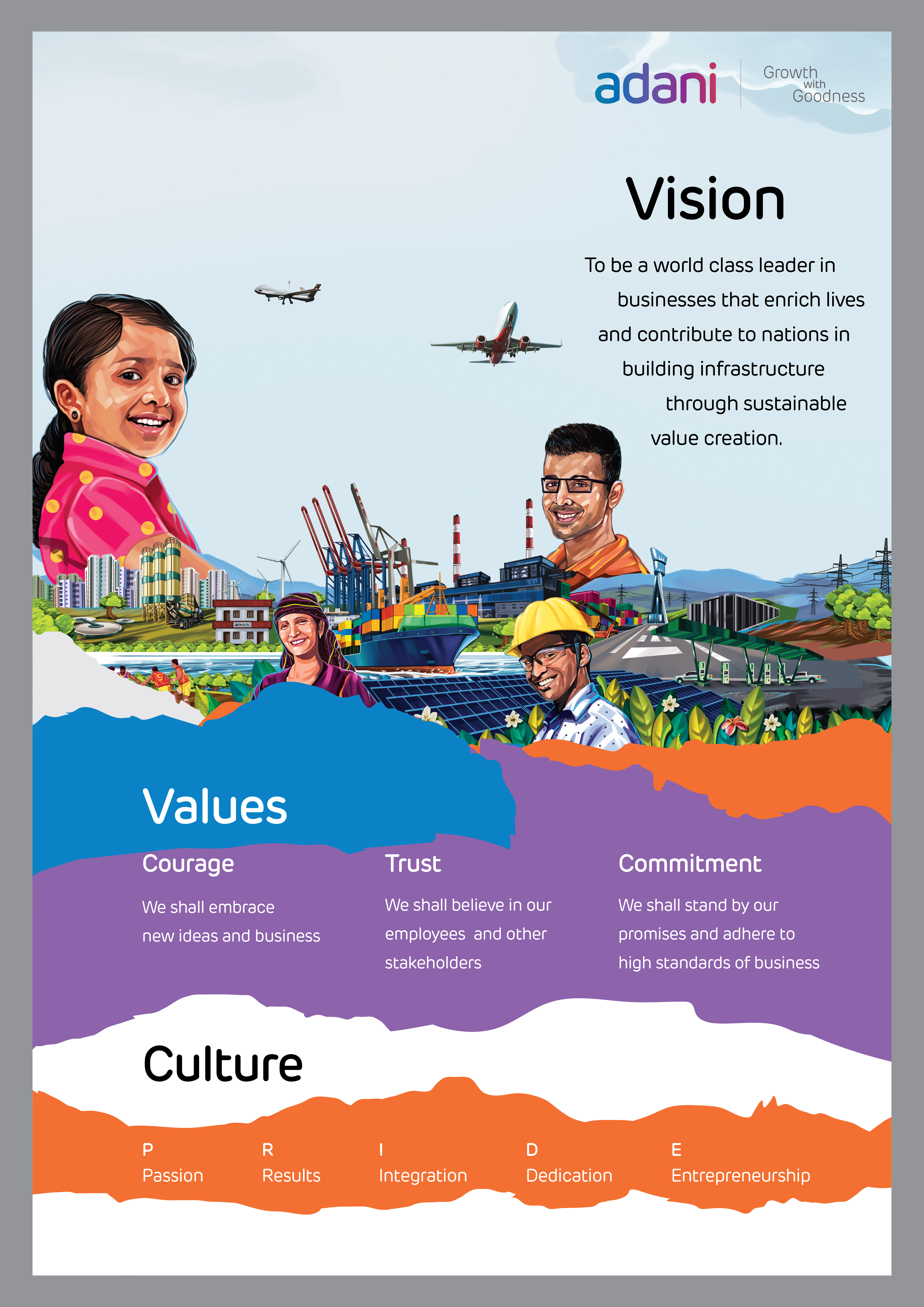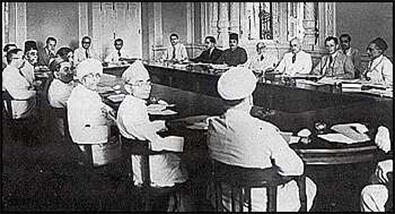





2020
2019
2018
2017
2016
2015
2014
2013
2012
2011
2010
2009
2008
2007
2006
2005
2004
2003
2002
2001
2000
1999
1998
1996
1995
1993
1992
1987
1984
1982
1979
1978
1977
1973
1971
1968
1965
1962
1961
1957
1956
1955
1952
1947
1944
1939

1937
1936

ACC’s first community development venture near Bombay
India’s first entirely indigenous cement plant established at Chaibasa in Bihar
Village Welfare Scheme launched
Sindri cement works used the waste product calcium carbonate sludge from fertilizer factory at Sindri.
Bulk Cement Depot established at Okhla, Delhi
Technical training institute established at Kymore, Madhya Pradesh.
Katni Refractories
Blast furnace slag from TISCO used at the Chaibasa Unit to manufacture Portland Slag Cement for the first time in India.
Manufacture of Accocid Cement, which resists the corrosive action of acids and chemicals.
Oilwell Cement manufactured at ACC Shahabad Cement Works in Karnataka for cementation of oilwells upto a depth of 6,000 feet.
Manufacture of Hydrophobic (waterproof) cement at ACC Khalari Cement Works in Bihar.
Manufacture of Accoproof, a waterproofing additive.
ACC’s Central Research Station (CRS) established at Thane
Manufacture of Portland Pozzolana Cement.
Manufacture of Calundum, a High Alumina Binder; Firecrete, Low Density Alumina Castables and High Alumina Refractory Cement.
Advent of computers in ACC for data processing and designing management information and control systems.
ACC supplied and commissioned one-million-tonne iron ore pelletising plant ordered by TISCO
Manufacture of Whytheat Castables A, K, C and Cal-Al-75
Take-over of The Cement Marketing Company of India (CMI)
ACC receives ASSOCHAM first national award for the year 1976 instituted for outstanding performance in promoting rural and agricultural development activities.
Introduction of the energy efficient precalcinator technology for the first time in India. Full scale commercial production based on MFC technology at Wadi in 1979.
ACC wins international contract for operation and management of a new one million tonne cement plant at Yanbu-Ras Biridi in Saudi Arabia.
Commissioning of the first 1 MTPA plant in the country at Wadi, Karnataka.
ACC achieves a breakthrough in import substitution by developing and supplying a special G type of oil well cement to ONGC.
ACC develops a new binder for use at sub-zero temperatures, which is successfully used in the Indian expedition to Antarctica.
Incorporation of Bulk Cement Corporation of India, a joint venture with the Government of India.
ACC starts the commercial manufacture of Ready Mixed Concrete at Mumbai.
ACC selected as Most Respected Company in India by Business
Damodhar Cement & Slag Ltd, Purulia, West Bengal becomes a subsidiary of ACC
Commissioning of the 0.6 MTPA cement grinding unit at Tikaria, Uttar Pradesh.
Commissioning of captive power plants at the Jamul and Kymore plants in Madhya Pradesh.
Tata group sells 7.2% of its stake in ACC to Ambuja Cement Holdings Ltd, a subsidiary of Gujarat Ambuja Cements Ltd. (GACL)
Tata Group sells their remaining stake in ACC to the GACL group, who with 14.45% now emerge as the single largest shareholder of ACC.
Commissioning of the new plant of 2.6 MTPA capacity at Wadi, Karnataka plant, the largest in the country, and among the largest sized kilns in the world.
ACC wins PHDCCI Good Corporate Citizen Award
IDCOL Cement Ltd becomes a subsidiary of ACC
IDCOL Cement Limited is renamed as Bargarh Cement Limited (BCL).
ACC raises US $ 100 million abroad through Foreign Currency Convertible Bonds (FCCB’s) for US$ 60 million and Global Depository Shares (GDS’s) for US $ 40 million. Both offerings are listed on the London Stock Exchange.
ACC named as a Consumer Superbrand by the Superbrands Council of India, becoming the only cement company to get this status.
GreenTech Safety Gold and Silver Awards awarded to Madukkarai Cement Works and Katni Refractory Works by Greentech Foundation for outstanding performance in Safety Management System.
ACC receives the CFBP Jamnalal Bajaj Uchit Vyavahar Puraskar Certificate of Merit – 2004 from Council For Fair Business Practices.
Holcim group of Switzerland enters strategic alliance with Ambuja Group by acquiring a majority stake in Ambuja Cements India Ltd. (ACIL) which at the time held 13.8 % of the total equity shares in ACC. Holcim simultaneously makes an open offer to ACC shareholders, through Holdcem Cement Pvt. Limited and ACIL, to acquire a majority shareholding in ACC. Pursuant to the open offer, ACIL’s shareholding in ACC increases to 34.69 % of the Equity share capital of ACC.
Commissioning of Modernisation and Expansion project at Chaibasa in Jharkhand, replacing old wet process technology with a new 1.2 MTPA clinkering unit, together with a captive power plant of 15 MW.
Financial accounting year of the company changed to calendar year January-December
Subsidiary companies Damodhar Cement & Slag Limited, Bargarh Cement Limited and Tarmac (India) Limited merged with ACC
ACC announces new Workplace policy for HIV/AIDS
Change of name to ACC Limited with effect from September 1, 2006 from The Associated Cement Companies Limited.
ACC receives Good Corporate Citizen Award 2005-06 from Bombay Chamber of Commerce and Industry
New corporate brand identity and logo adopted from October 15, 2006
ACC establishes Anti Retroviral Treatment Centre for HIV/AIDS patients at Wadi in Karnataka– the first ever such project by a private sector company in India.
ACC partners with Christian Medical College for treatment of HIV/AIDS in Tamil Nadu
Sumant Moolgaokar Technical Institute completes 50 years and reopens with new curriculum
Ready mixed concrete business hived off to a new subsidiary called ACC Concrete Limited.
ACC Cement Technology Institute formally inaugurated at Jamul on July 7.
First Sustainable Development Report released on June 5.
ACC wins CNBC-TV18 India Business Leader Award in the category India Corporate Citizen of the year 2008
Project Orchid launched to transform our Corporate Office, Cement House into a green building.
ACC received the Jamanalal Bajaj "Uchit Vyavahar Puraskar" of Council for Fair Business Practices
ACC is allotted coal blocks in Madhya Pradesh and West Bengal.
ACC's new Grinding plant of capacity 1.60 million tonnes inaugurated at Thondebhavi in Karnataka.
Cement House transformed into Green building with Leadership in Energy & Environmental Design (LEED) Gold certification from Indian Green Building Council. First project in the country in category major renovation of existing building.
Kudithini Cement Grinding Plant inaugurated in Karnataka on January 4, 2010 a capacity of 1.1 MTPA of Portland Slag Cement.
ACC acquires 100 percent of the financial equity of Encore Cements & Additives Private Limited which is a slag grinding plant in Vishakhapatnam in coastal Andhra Pradesh. This company became a wholly-owned subsidiary of ACC in January 2010.
ACC enters its platinum jubilee year - the first company in the cement industry to achieve this status
ACC receives FICCI Award for Outstanding Corporate Vision Triple Impact Business Performance Social & Environmental Action & Globalisation for 2009-10 - a unique award received for the first time
New clinkering line of capacity 7000 tonnes per day commissioned at Chanda in Maharashtra in November 2010. Fully integrated plant of 3.8 million tonnes per annum of cement inaugurated in January 2012.
World's largest kiln installed at ACC Cement Plant, Wadi, Karnataka with a capacity of 12,500 tonnes per day creating new landmarks for cement industry
Central Control Room Building at ACC Chanda Plant, Maharashtra set up as a Green building, the first of its kind in an industrial environment
ACC Secretarial & Share processes received ISO 9001 – 2008 Certification
ACC launches M-100 grade concrete especially designed for the construction of high intensity towers
Amalgamation of two subsidiary companies ACC Concrete and Encore Cement & Additives with ACC Limited
First cement company in India to induct use of Radio Frequency Identification Device (RFID) and Global Positioning System (GPS) tracking to accelerate turnaround time of trucks
La Residency at Thane, a 45 year old apartment block retrofitted as a modern hostel, received LEED Platinum certification.
ACC sets up Green Building Material Centres in Maharashtra, Uttar Pradesh, Madhya Pradesh, and Rajasthan as one stop shops to promote low-cost locally made green construction materials and expertise to rural and semi-urban India.
ACC wins CII-ITC Sustainability Prize, the highest honour awarded by CII ITC for 2013, as one of India's Most Sustainable Companies.
ACC ranked as India's Most Admired Company in the cement sector by Fortune India and Hay Group India.
ACC launches its first Waste Heat Recovery System (WHRS) at Gagal in January 2014, marking an important step in energy conservation. The WHRS harnesses waste heat from exhaust gases discharged in manufacturing and converts it into useful electrical energy.
ACC sets up a plant in Bardhaman, West Bengal to manufacture EcoBricks which are eco-friendly and technically superior fly ash based bricks to meet the emerging needs of the construction industry in a sustainable way.



